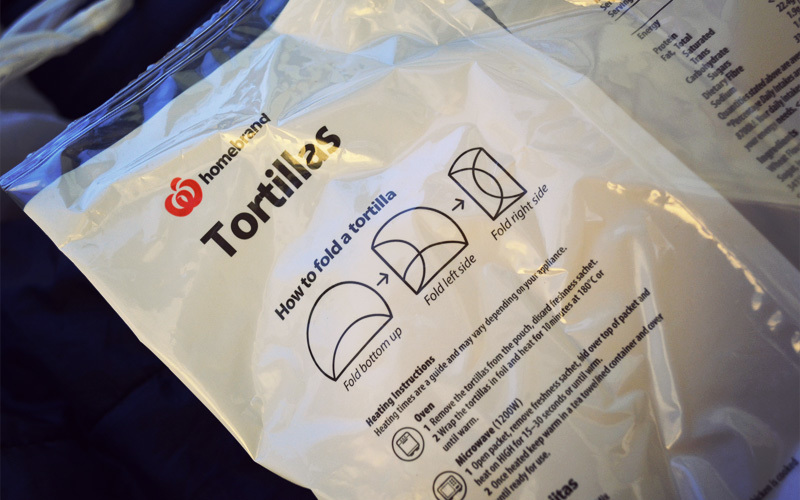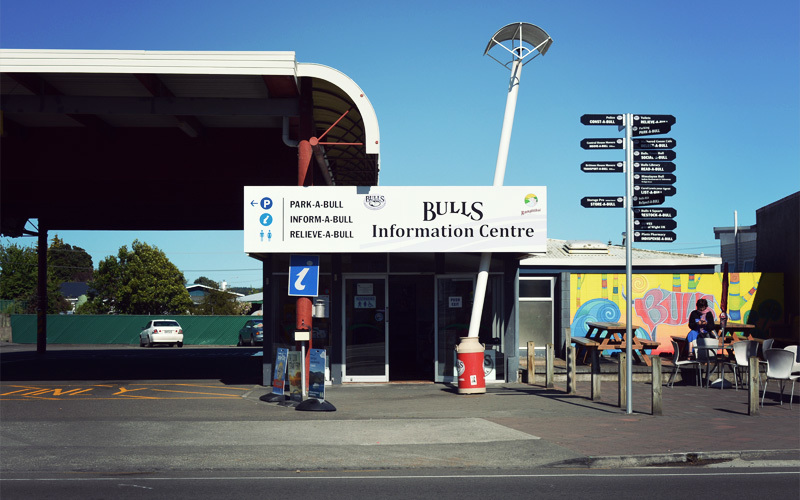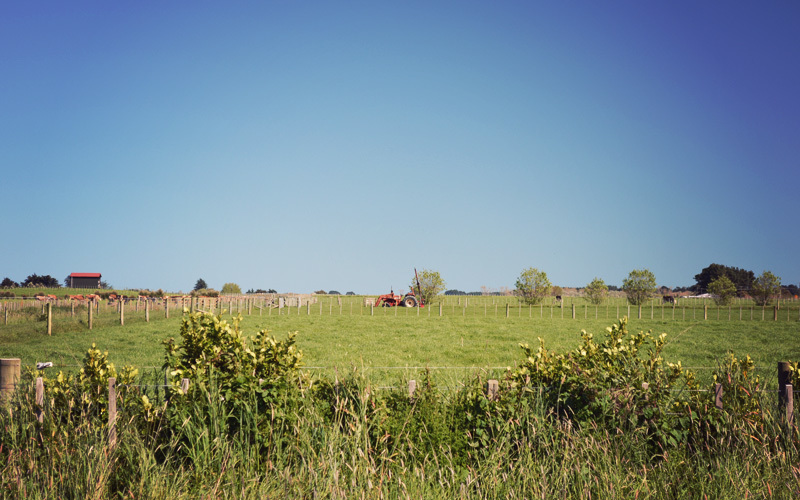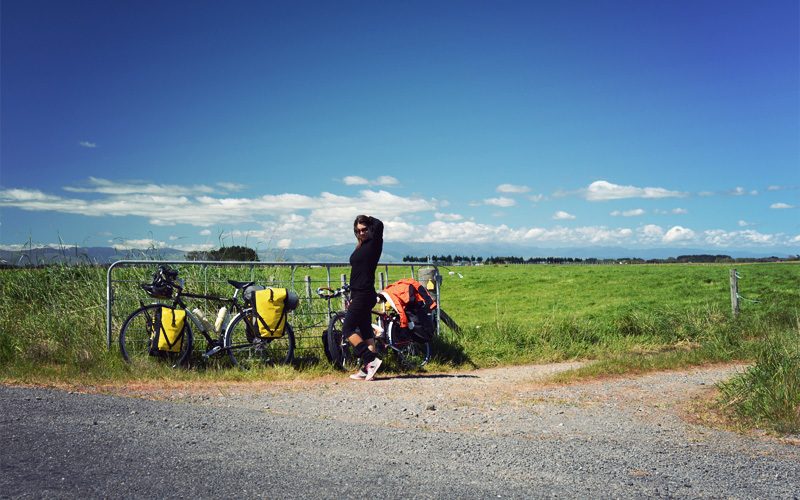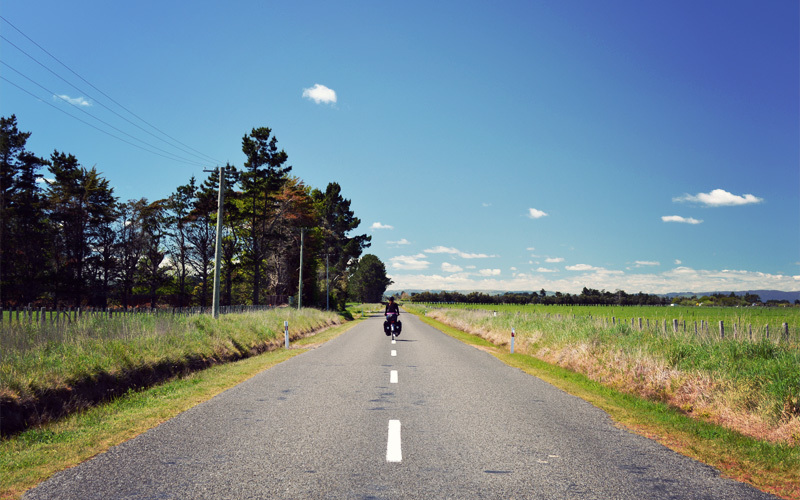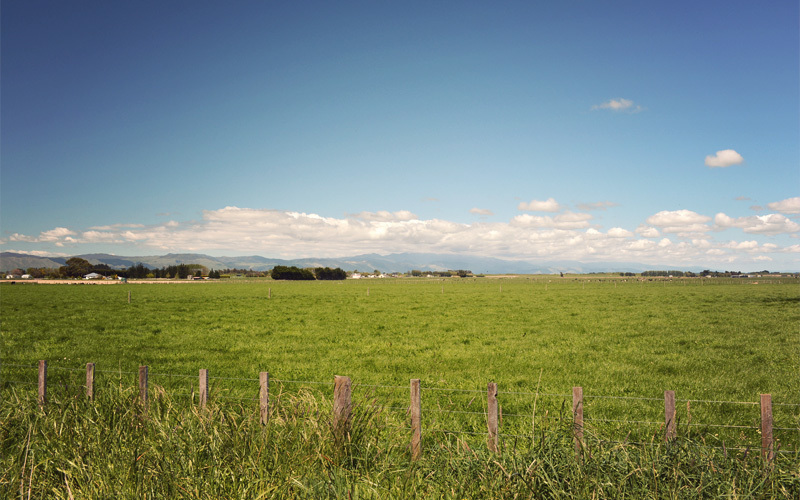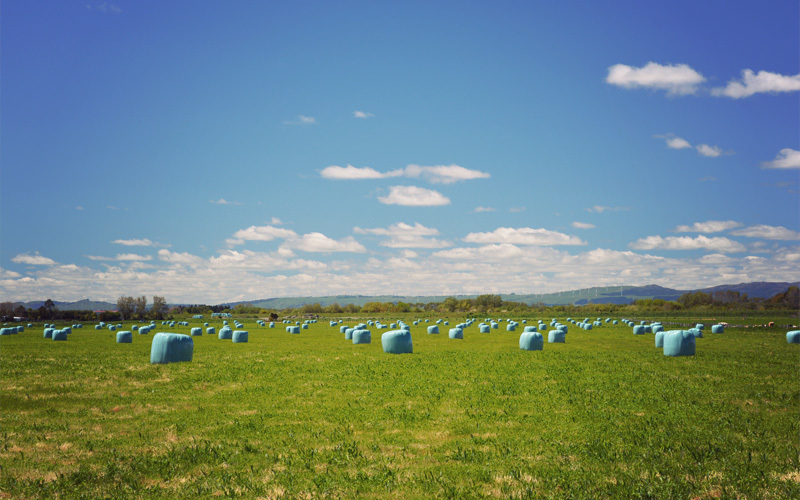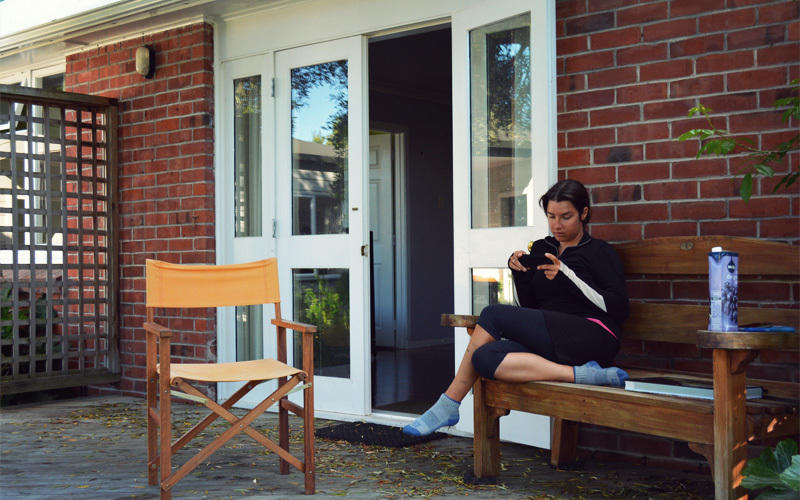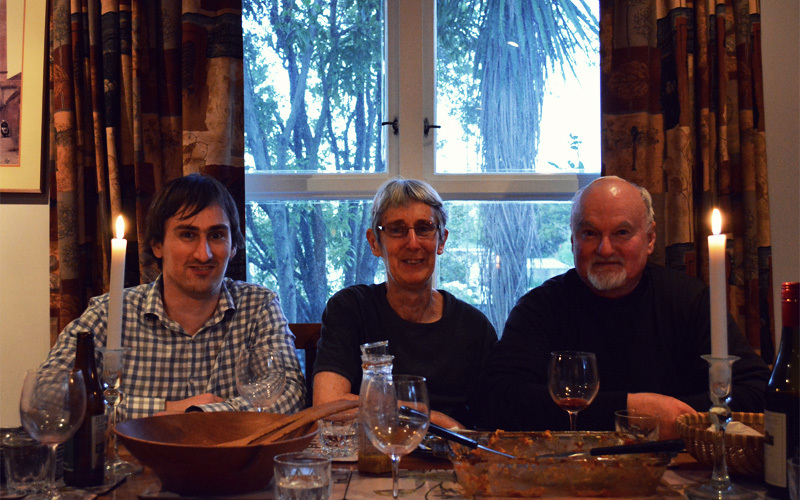October 22, 2014
Day 57: Near Turakina, NZ to Palmerston North, NZ
At around 2:00 we wake up to the sound of wind that his picked up strength and shows no sign of leaving. That's why we aren't shocked when it's still around four hours later, when we promised each other we'd get up and crank out our last section of highway riding. Only by then the air inside the tent feels even colder, almost freezing. This means that instead of packing up and heading out we pull the top of the sleeping bag over our heads, scoot farther down into the warmth, and let our plans for an early start slip out from under the edges of the rain fly.
In the end, the late start doesn't cost us all that much. We're early enough that most of the huge trucks aren't yet on the road, and far enough down the coast that the long series of steep climbs and descents surrounding every creek that runs toward the ocean has eased up. The headwind is still a headwind, but if that's our worst complaint we feel like we've come out way ahead. We celebrate when we reach the town called Bulls, where we talk like we're from Chicago, eat hand pies stuffed with lamb meat and gravy, and then throw the balled-up wrappers at each other as hard as we can.
Beyond town things get weird. We know we're still in New Zealand, because we continue to ride on the left side of the road and the accents continue to be wonderful, but as soon as we cross a river and head off the highway the road turns flat. We can see hills to the north and to the east, but for the first time in almost two weeks we aren't riding up or down them. Instead it feels like we've been dropped into the middle of a crisp spring day in Iowa or Kansas or Nebraska.
For a short stretch we play a game of tag while riding our fully loaded bicycles. Then we try to see how far we can ride those bicycles with no hands on the bars. (Not far.) It's like the lack of hills and traffic makes us uncomfortable, so we have to create artificial danger to try and fill the gap. After that we stop next to a small field of calves and feed them grass and let them lick our hands with their long and rough tongues, where the only danger is that we'll lose our minds from too much adorableness. When it's time for lunch, we pull off into a field and eat apples, cookies, and crackers with pesto. The only sounds are the swishing of the grass in the wind and the distant rumble of an excavator digging a drainage ditch.
As we eat, a middle-aged and heavyset farmer rolls up on his four-wheeler and starts to talk to us.
"So where ya from?" he asks.
We tell him what we've learned to tell everyone: "We're from the United States; from the West Coast; from Portland, Oregon."
"I just got back from America," he says. "People love their processed food there, I tell ya. I was in Madison, Wisconsin for this international dairy conference, and because of the jet lag I woke up late and the hotel wasn't serving breakfast anymore, ya know? So we went walking downtown and there's all these little places with burritos and sandwiches and we're asking them, like, Is this stuff fresh? And they say no as they're poppin' it in the microwave. It was like that everywhere. I don't know how you can stand it. But anyway, how'd ya come to choose New Zealand?"
"Well, we heard that it was beautiful and interesting, that it's not very crowded outside of the big cities, and that the people are friendly and welcoming. And it'll be spring and summer here when it's fall and winter at home, so you know, there's that too. And also it's ... when you travel by car, there's like a ninety-five percent chance that you'll get to see whatever it is that you came to see. But on bicycles it's maybe fifty percent, because stuff might break or you might get hurt or the weather's terrible or whatever, so if there's some place you really want to go, you need to do that first. New Zealand was at the top of our list, so here we are."
We also talk to the farmer — whose name we never find out, and to whom we also stay anonymous — about what we've talked to so many farmers about, which is how farming continues to change at such fast pace here.
"When I was in America I saw these big, big farms, maybe 8,000 or 9,000 head of cattle," he says. "They keep 'em inside in pens all the time, feed them corn, you know, never let them outside in the paddocks. And what they do is, they use the land that they would have been grazing on and grow corn instead, which is what they feed back to them. That's what's starting to happen here. It's already started on the South Island, in fact, because three or four months of the year there ya can't grow corn, because of the cold. And regulations are actually pushing things in that direction, because when everything's under control like that, with the cattle all in one place, they can monitor better what goes in and what goes out, ya know?" So not this generation, but probably the next one, that's how it's gonna be. You'll look out here and you won't see water troughs and paddocks and all that, it'll just be big holding pens and the rest'll all be corn or something."
He sighs and looks down at his feet.
"But that's progress, right?"
The farmer, the quiet roads, and everything that comes along with cycling through rural country helps us feel more alive than any place else. If we could avoid busy highways forever we might never stop traveling by bicycle. We can't avoid the highways of course, but it doesn't mean we won't try our best. Our first stop when we pull into Palmerston North is the train station, where we try and buy a pair of tickets for the once-daily trip to Wellington. We made the decision several days ago to draw from our Auckland experience and save the aggravation and danger of riding into a major city on busy streets and crowded motorways when we learned that the stress-free option of a train existed.
That once-daily trip happens only at 6:15 in the morning, so Palmerston North becomes the end of the line for today. We ride across the city to the home of Andrew and Pamela and Graham, where we have a chance to enjoy the sun and calm winds — which around here are usually clouds and rain and gusts — on the back porch, in the shade of an olive tree, while drinking grape juice from a box and poring over a New Zealand atlas as we try to figure out where we might head next.
Over dinner we learn that the only mammals native to this country are seals and bats. Everything else has been imported from somewhere else. We find out that when Captain James Cook arrived in New Zealand in the late 1700s, the land was covered almost entirely with trees, and that the trees were so thick with birds that the captain's crew couldn't sleep at night while anchored in a harbor because the noise from the birds was so loud and varied and never-ending. We also learn about the politics of New Zealand and the results of the most recent election, and how the seventy-five percent voter turnout for that election is considered quite low here. All of this is set to the sounds of Ella Fitzgerald and Bob Dylan, a delicious dinner made and also presented with care, and just enough beer and wine to make us feel like we're interesting.
When you travel the way we do, the bicycles matter; the routes matter; the weather matters; finding out what we're capable of achieving matters. But these elements alone aren't sufficient to create a rewarding adventure. Without taking the time to talk and listen to the farmers, to our hosts, to the local bicycle riders, to the early morning walkers, or to the curious-looking people we meet in front of gas stations or grocery stores, the chance to better understand and appreciate the culture and the lifestyle and the nuances of the places we're traveling would be missed. Instead of becoming part of the fabric of our trip, and adding to the memories we'll keep with us for the rest of our lives, that chance would fall into the gutter at the edge of the road, like so many beer bottles and condiment packets and Whoppa Sausage Roll wrappers.
Today's ride: 38 miles (61 km)
Total: 1,984 miles (3,193 km)
| Rate this entry's writing | Heart | 2 |
| Comment on this entry | Comment | 0 |
